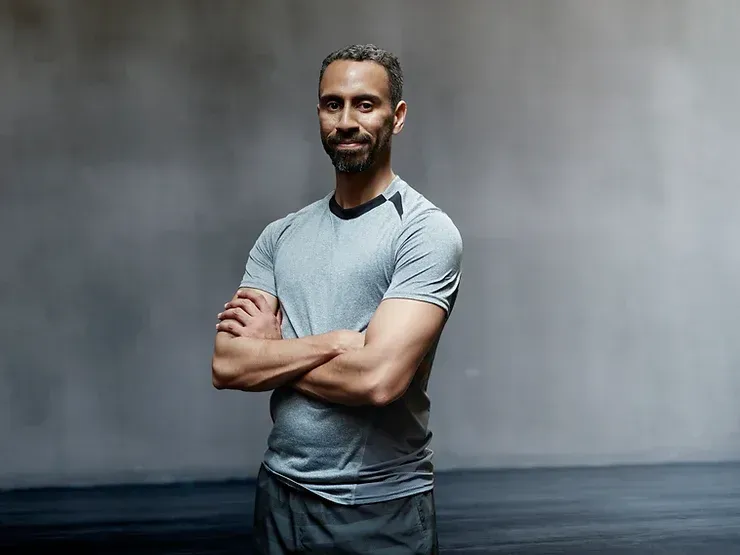The MEGA LIST of Books, Courses and Free Resources on Copywriting
Rilassati.
Con Deep Marketing hai la migliore agenzia veneta secondo IB Awards, credibilità e senior manager con 20 anni di esperienza.
Visibilità garantita su testate nazionali senza l'utilizzo di pubbliredazionali?
Prova la nostra incredibile promozione: se la nostra strategia non riesce a farti ottenere articoli reali dai giornalisti, ti rimborsiamo.
In recent months we have been bombarded with questions from people interested in improving their business and persuasive writing skills for marketing, advertising and more. So let's talk about "copywriting skills".
What courses should I take? What books to read? How to practice? What opportunities do I have?
Today we will answer these questions.
We understand requests of this type because the confusion in Italy regarding this discipline is enormous. Ten years of fuffaguru have created a gigantic entropy and have deluded very young kids and inexperienced entrepreneurs that they can easily learn to write very well so as to exponentially increase their own sales or those of their customers, in a real "money printing machine" that comes out of your own words.
Nothing could be further from the truth, obviously. Copywriting is not a magic formula, people cannot be easily manipulated into buying like billions of fish in a trawl net. And they are certainly not skills that are easily learned. It takes talent first of all, and then a lifetime of dedicated and specialized improvement in copy.
Even more important: if it is true that many can learn the art of copying, only very few can define themselves as a "copywriter". In the professional discipline, this figure refers to the manager at very high levels of agencies and companies and who deals with strategy, high analysis, development of slogans for campaigns worth millions of euros. Over time in Italy the job title has been diluted and is now also used by inexperienced people or content specialists, but we believe it is important to underline this point. If you want to be taken seriously, use the right definition for your role, which is usually one of:
Web Editor: junior people involved in editing blogs and social posts, occasionally larger web texts and landing pages (where we all started).
Content Specialist: 4-6 years of experience, usually with a degree. More rounded professionalism, usable online and offline.
Content Manager: more than 10 years of experience, necessarily with a degree and a very important CV with relevant clients or for structured agencies.
Copywriter: top professional that you can only find in large agencies and important companies, usually working with an art director
This is just advice. Being taken seriously also depends on the correct use of professional words and definitions. Then everyone can do what they want.
Before getting to the list of free resources, a review of the basics is needed.

What is Copywriting
Copywriting is the art of writing persuasive and effective texts, capable of attracting attention, conveying a message and pushing the reader to take a specific action. This is an important skill for marketing and communication, as it allows you to create content capable of selling products or services.
Simply put, copywriting consists of writing texts with the aim of selling a product, service or idea. Copy marketers or content writers are experts at creating engaging, persuasive and memorable content, designed to push the target reader to take a specific action, such as:
- Find out about the brand
- Go to a store
- Speak to a salesperson or clerk
- Give more attention to an advertisement
- Purchase a product
- Request a quote
- Subscribe to a newsletter
- Download an ebook
- And much more...
In addition to commercial objectives, copywriting is also used to convey social, political or educational messages. A copy expert is able to adapt their style and tone of voice based on the situation. objective and the target audience.
The areas in which copywriting is most applied are:
- Advertising
- Landing page
- Email marketing
- Social media
- Blog articles
- Brochure
- Packaging
- Speech
In summary, wherever there is a need to communicate effectively and persuasively, the art of copy comes into play.
The characteristics of a copy expert
For a text to be effective and persuasive, it must present some fundamental characteristics, which embody the skills and experience of its author:
Clarity: the message must be clear, understandable and free of ambiguity. The reader must immediately understand what you are talking about.
Brevity: short and concise sentences allow for smooth reading and intensify communicative effectiveness.
Coherence: all parts of the text must be in line with the objective set.
Relevance: the copy must be relevant to the audience we are addressing.
Credibility: the reader must trust the writer. Credibility is built by providing evidence, testimonies, figures.
Emotionality: good copy must arouse emotions and involve the reader on an emotional level.
Persuasiveness: the text must push the target reader towards the desired action.
Originality: a touch of creativity helps capture attention and make the copy more effective.
By respecting these characteristics it is possible to write captivating texts with high conversion potential.
The 10 most effective copywriting techniques
There are some particularly effective copywriting techniques, used by the best experts in the sector. Here are the top 10:
1. AIDA technique
Acronym for Attention (attention), Interest (interest), Desire (desire) and Action (action). A classic structure that allows you to guide the reader through these 4 fundamental phases. Old but never outdated method.
2. Catchy headline
The headline (title) plays a crucial role in capturing attention. It must arouse curiosity and push you to continue reading.
3. Initial question
Opening with a thought-provoking question engages the reader and pushes them to look for an answer. Be careful not to be too rhetorical and bombastic!
4. Storytelling
Telling a story allows you to convey the message in an engaging and emotional way.
5. Lists and numbers
The bulleted lists and numbers give rhythm to the text and make it more flowing and convincing.
6. Images and examples
Adding images, metaphors or concrete examples increases credibility, involvement and persuasiveness.
7. Testimonials
Quotes and testimonials from satisfied customers build trust and desire. They should be used in moderation so as not to seem fake or fluffy.
8. Reliability
Offering free tests or some guarantees and showing qualifications reduces the perception of risk and encourages conversion.
9. Call to action (CTA)
The famous “call to action”, such as “Buy now” is essential to guide the target reader towards conversion.
10. PS
Techniques such as the post scriptum and "extra narrative" elements they increase desire and conversions.
These are (among) the copywriting techniques considered most effective by the leading experts in the sector. Applying them correctly can make a big difference.
If these techniques have convinced you, in the next chapters we come to the list of free courses and books to learn copying!

Free copywriting and content courses
To improve your persuasive writing skills there are various courses, some of which are completely free.
Here are some of the best for beginners and intermediates, all free, carefully chosen by us:
The Content Marketing Strategy (Italian language option)
https://www.coursera.org/learn/content-marketing< /p>
English, with Italian language and subtitles. Approximately 20 hours of course, provides a highly resellable certificate. "The Strategy of Content Marketing" is a course created by Copyblogger, leader in content marketing, in collaboration with the University of California. The program allows you to learn the key strategies used by content managers to acquire and retain customers profitably. Specifically, you learn to:
- Develop, organize and implement a content marketing strategy
- Analyze and measure the effectiveness of content
- Write persuasive texts
- Apply a strategic framework when writing
- Build your brand and authority through content marketing
The course also allows you to put what you have learned into practice and strengthen your personal branding thanks to this powerful marketing lever.< /p>
Create viral content (Italian language option)
https://www.coursera.org/learn/wharton-contagious- viral-marketing
What makes an idea so contagious that it spreads quickly online and offline?
This course answers those questions by exploring the dynamics behind successful viral marketing. Through the principles outlined in the best seller "Contagious: Why Things Catch On", Professor Jonah Berger illustrates concrete strategies to make your messages more shareable and generate word of mouth.
You will learn how to:
- Create engaging content that stimulates engagement
- Structure viral campaigns capable of catalyzing attention
- Exploit virality to increase credibility and influence
- Use social media to spread ideas and products
By the time you finish, you'll know how to apply the power of contagiousness to copywriting and content marketing, making your texts and content go viral. Or at least they try.
The Art of Persuasive Writing from Harvard University (English only)
This course is an introduction to the theory and practice of rhetoric, the art of persuasive writing and effective speaking. You will learn to construct and defend persuasive arguments, a crucial skill in many contexts.
Will analyze selected speeches by notable Americans of the twentieth century - such as Martin Luther King Jr., John F. Kennedy, Margaret Chase Smith, Ronald Reagan and others - to explore and understand rhetorical structure and style.
Through these analyses, you will understand how speakers and writers persuade audiences to adopt their point of view. The course is based on the program taught by Professor James Engell at Harvard, "Elements of Rhetoric", and will help you apply rhetorical structures and styles, appreciate the relevance of persuasive communication in your life, and understand how to convince others and recognize when someone he's trying to persuade you.
Creative and engaging writing (Italian language option)
https://www.coursera.org/specializations/creative-writing< /p>
4301 reviews with an average of 4.6. 20 hours of course. English with audio or Italian subtitles.
This specialization in creative writing delves into the techniques of the three main narrative genres: short story, narrative essay and memoir. You will learn to:
- Create an engaging story
- Develop memorable characters
- Build an interesting setting
- Use an effective descriptive style
- Analyze and evaluate other people's texts in a constructive way
In your final project, you will write, revise, and complete a substantial short story in your chosen genre. The courses are designed for both aspiring novice writers and for already established novelists. Students will benefit from discounts of up to 80% on publishing services and software for writers. Furthermore, by completing the required tasks you will be entitled to a 30% discount to access the Scribophile online community.
Writing for SEO optimization on search engines (Italian language option)
https://www.coursera.org/specializations/seo
This specialization teaches how to optimize the contents of a website to improve its positioning on search engines, with a specific focus on SEO copywriting techniques.
Yes< span style="color: rgb(19, 52, 59);"> will learn the theoretical foundations of Google and other engines' algorithms, as well as practical skills applicable to a career in digital marketing or online content production. Among the topics covered: on-page and off-page optimization, SEO for local and international markets, website analysis and alignment of SEO with strategies corporate.The path is designed to incrementally build skills with each course.
It culminates in a practical project in which the SEO copywriting skills acquired will be applied to carry out a complete textual optimization consultancy.< /p>
Become a content manager (Italian language option)
https://www.coursera.org/learn/digital- content-planning-and-management
The advent of digital has revolutionized the way we communicate, live and work. Whether you are a content creator, content manager or brand manager (or an enthusiast!), effectively managing content is crucial to the success of a campaign. This course teaches you how to inventory, create, analyze, and manage content for businesses of all sizes, as well as how to implement such systems in organizations.
Designed for industry professionals, the program explains how to build a concrete content strategy and a plan to implement it, even for beginners.
Upon completion, you will be able to create, manage, review and govern digital content, with a complete understanding of the process from A to Z.
Be a great Storyteller (Italian language option)
https://www.coursera.org/learn/brand-and- content-marketing
"Storytelling in Branding and Content Marketing" is a course at IE University dedicated to people interested in learning content marketing techniques based on quality storytelling, to create content with a high mnemonic impact.
The path starts from an analysis of Branded Content and its differences compared to traditional advertising, and then focuses on how to structure a solid narrative that effectively communicates the values and key messages of a brand.
Topics such as the production of high-level journalistic content, the creation of memorable connections with the target audience and competition in a context characterized by information overabundance are explored in depth.
Finally, through a specific focus on Brand Entertainment, you acquire skills to create convincing calls-to-action and keep the reader's attention alive.
Become a Prompt Engineer and have Artificial Intelligence write! (English only)
This very short course is aimed at those curious about any technical background who wants to unlock the potential of AI language tools through prompt engineering for copywriting or writing social posts
You will explore the world of ChatGPT and learn how to create effective instructions that produce powerful and relevant responses. Whether you're new to AI or looking to improve your AI interaction skills, this crash course will put you on the path to becoming a professional instruction engineer.
In addition to these excellent free introductory courses, there are many paid resources to learn more and specialize.
Is it enough? No? In the next chapter, ten space books on copywriting.

10 books on copywriting you absolutely must read
In addition to following targeted courses, reading books and manuals on copywriting is essential for both beginners and experts. Here are some timeless lyrics:
- "The Adweek Copywriting Handbook" by Joseph Sugarman: Complete manual for effective writing in marketing and advertising.
- "The weapons of persuasion" by Robert Cialdini: focus on the elements that trigger desire and push towards purchasing. A well-known classic.
- "Cashvertising" by Drew Eric Whitman: direct copywriting techniques applied to the world of sales.
- "Scientific Advertising" by Claude Hopkins: historical text from 1923, still very current. In this list you will find another volume by Hopkins. It's no coincidence.
- "The Copywriter's Handbook" by Robert Bly: Considered a classic in the field of copywriting, this book comprehensively and in-depth guides all aspects of persuasive writing, from understanding your target audience to creating engaging headlines.
- "Everybody Writes" by Ann Handley: an excellent book, written by the head of Content Marketing at MarketingProfs, which explains the importance of content writing in modern marketing. Includes practical advice on how to create engaging and effective content.
- "Confessions of an Advertiser" by David Ogilvy: an unmissable classic, with the foundations and practical advice of the father of modern advertising.
- "The imagined word" by Annamaria Testa: considered one of the fundamental texts, it explains how persuasive communication works through examples and practical exercises.
- "Advertising" by Annamaria Testa: second recommended volume by the author. Si is an introductory text that explains the mechanisms and techniques underlying advertising, especially suitable for those approaching this world for the first time .
- My life in advertising" by Claude Hopkins: the book recounts Hopkins' 66-year career, which with his work he also influenced and inspired famous advertisers such as David Ogilvy. It is considered a fundamental text for understanding the basics of modern marketing, directly from the voice of one of its pioneers.
In addition to these evergreens, the world of copywriting offers a vast literature of high educational value: it is worth delving deeper into it.
Please note that many of these books are in English for two reasons:
- Whoever wants to do this job MUST know English, at least in reading. When you bring bread to the table with words, knowing Italian is not enough.
- Books in Italian on copying are almost always poorly made interpretations by people who are not exactly at the top of the category, if not gurus or inexperienced. Many rules are wrong because they were badly interpreted by the Anglo-Saxon world, which invented copywriting. We do not recommend.
Conclusions
Copywriting is a crucial skill for communicating effectively and achieving business and marketing objectives. Mastering the art of persuasive writing allows you to create captivating, engaging and memorable content, capable of attracting attention and driving the target reader towards conversion.
To improve your copywriting skills it is essential to both follow targeted training courses and read books and manuals on the topic. In this article we have indicated some of the main training resources available, both free and paid, as in the case of books.
Copywriting requires study, commitment and a lot of practice but it can really make the difference in the success of marketing, sales and communication campaigns. It is therefore worth investing time and dedication to master this precious skill.
Forget completely about being able to learn these skills in your free time, in a single course from an imaginary Italian leader or with tricks. It's a career.
But you can start from here.












